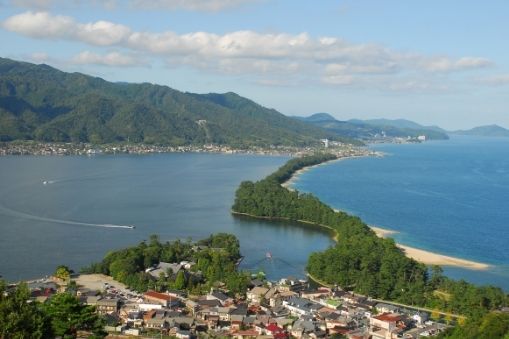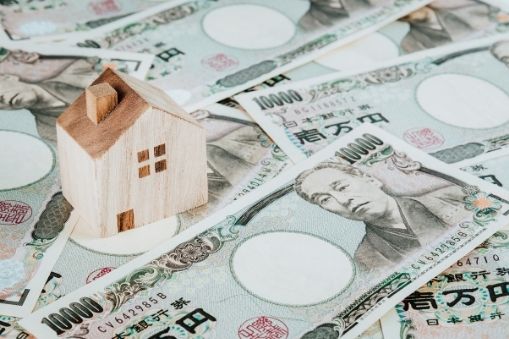For many people around the globe, the land of the rising sun represents a new sunrise for their lives. It is an opportunity to start a new life in a unique and fascinating country.
For all intents and purposes, there are many reasons why people would want to relocate to Japan. When people initially think of Japan, their minds inevitably turn to the country’s culture. Historically, Japan’s culture is both significant and enriching. The people themselves continue to respect their history and live out the core values they’ve learned from the past even today.
Apart from their history, their culture of anime and manga is attractive to many people. It is a land of imagination and creativity, where anything is possible.
Foodies will also not be strangers in Japan. Whether it’s ramen, sushi, or just grilled fish, Japan is home to a veritable feast consisting of both traditional and modern dishes.
In terms of career, people moving to Japan have nothing to fear. Japan’s economy is in a good place. The economic recovery of the last quarter of 2020 was very positive, with their GDP decreasing by 1.2% the previous year.
While this decrease may seem counterintuitive to positivity, considering the state of the pandemic, it shows how firm the economy is.
Furthermore, opportunities abound in the streets of Japan, even for foreigners. The central work centers which include Tokyo, Yokohama and Osaka provide numerous job opportunities, with English speakers coming in high demand.
Japan’s Fiery Passion
The final endearing piece of Japan that pulls everyone like its own special kind of gravity is the passion. Whether it is someone who creates food, writes manga, or teaches students, the Japanese people throw themselves into their work with a fiery passion and infectious zeal that is enviable the world round.
If these reasons have either stoked the flames of your moving to Japan or motivated you to start considering it, the next concerns would be on real estate. Apart from visa issues, having a place to stay when uprooting and moving to another country is always a big concern.
Fortunately, we at Global From Asia have researched on whether or not foreigners can own Japanese land and what it will take to do so.

Can Foreigners Own Japanese Land?
As the title suggests, the answer to whether or not foreigners can own Japanese land is a resounding yes.
Usually, most countries have strict laws and regulations in place when it comes to foreigners buying land or owning real estate. Japan stands unique in this regard, as the country has no laws or regulations that stop foreigners from doing so.
Unlike other countries, Japan does not require purchasers to be Japanese citizens. They also do not require that the people buying real estate have permanent resident status or have a specific visa type.
In fact, most if not all rights for purchasing real estate and acquiring proprietary rights are the same for both Japanese citizens and foreigners.
In short, foreigners are allowed to buy land and buildings in Japan.
Rights, Taxes and Other Regulations
When it comes to proprietary rights, it does not expire even if it belongs to a foreigner. Thus, properties bought by a foreigner can be bought, sold, and even inherited by the family.
In terms of taxes, a Japanese citizen and a foreigner buying land at the same time and of the same area size would pay the exact same amount. Foreigners are not charged more just because they are not citizens.
This is why purchasing land, buildings, and real estate in Japan is very attractive for foreigners. There really isn’t a lot of red tape to go through in terms of laws and regulations, as foreigners enjoy the same rights that Japanese citizens enjoy.
What’s the Catch?
Many people who have read the attractive side that Japanese real estate offers to foreigners may think that there is a catch.
There actually is a small caveat that foreigners who want to buy Japanese land should know and understand. While the purchasing and owning of land is permitted to foreigners, this does not change their foreigner status.
Owning real estate in Japan as a foreigner does not automatically grant a person a visa or permanent resident status.
This is something that must be kept in mind at all times and may help make decisions for foreigners along the way. After all, if a foreigner purchases land in Japan with the intent to live there, that type of visa and status of residence must first be locked down and ensured.
Important Real Estate Laws and Regulations
While there are no real laws and regulations regarding foreigners purchasing real estate in Japan, this doesn’t mean to say that Japan’s real estate industry is the wild west. It is actually the opposite.
The laws governing real estate and property transactions are well-developed, and they focus mostly on ensuring safe business transactions.
With real estate being as important as it is wherever one is in the world, Japan has put several laws in place to ensure that there are no problems when anyone buys real estate there.

These laws include things like checking the property well, checking on the relationship of rights, and many other legal regulations that help to make every transaction a safe one.
One very important law when purchasing real estate in Japan is a requirement for a person with the title of “Real Estate Transaction Specialist” being present when the contracting procedures are taking place. They need to be there to explain important details to the people buying the land.
In terms of transactions, most if not all real estate transactions go through real estate companies. Transactions between individuals are rare. Furthermore, people prefer to coarse real estate business through these companies in order to ward off any troubles.
Next, let’s take a step-by-step look at the process foreigners need to go to for purchasing Japanese land.
The Process for Foreigners to Purchase Japanese Land
1. Choose Between a Freehold Property or a Leasehold Property
The first step for foreigners is to select whether they will be purchasing a freehold property or a leasehold property. A freehold title gives full ownership of the land and even the structure on it.
A leasehold property allows a foreigner to lease it. A new Japanese law has set the initial threshold for a lease to go up to 30 years. This extends to all property types. After these 30 years, it can be extended up to 20 more years.
Apart from owning the land and structure outright, selecting a freehold property will generally have a faster process. Moreover, as the land appreciates in value over the years, the owner can stand to profit.
The downside of a freehold property is that it costs significantly more than a leasehold property and the taxes are higher.
While the process for leasehold properties won’t be as fast, in terms of cost, it can be up to 40% more affordable than its freehold counterparts. There are also no land taxes to pay for.
The disadvantages though include the paying of monthly rent to a landowner, the difficulty in reselling it when the time comes, and the arduous application process.
PROS | CONS | |
FREEHOLD PROPERTY | Owns land and structure | Costs more |
Faster process | Higher and additional taxes | |
Owner stands to profit when lands appreciates in value | ||
LEASEHOLD PROPERTY | Up to 40% more affordable than freehold properties | Monthly rent to paid to landowner |
No land taxes | Difficult to resell | |
Harder application process |
2. Find a Real Estate Agent and Company in Japan
It has been mentioned previously that real estate transactions are usually coursed through real estate agents and companies. Apart from that though, these companies can help with one of the biggest decisions a person ever makes in their life.
They provide assistance by guiding buyers in legal matters, the translation of documents, giving advice on the neighborhoods and areas, helping you view the property, and assisting with negotiations.
Find the right real estate agent or company and share with them your vision for your new life in Japan. They will no doubt have some invaluable nuggets of wisdom to help guide you on your journey.
Bear in mind that linking with a real estate company will require a broker agreement. The standard brokerage commission is about 3%.
There is no shortage of real estate companies in Japan. There are roughly 120,000 in Japan, which is roughly twice the number of convenience stores.
However, there are specific real estate companies that cater to foreigners. This will largely help in cutting down the numbers and finding the right company for you.
Several foreigner-friendly real estate agencies in Japan include:
3. Find the Right Property
Once you have shared your vision and have a pretty good idea of what you want, it is time to find the right property. Work closely with your real estate company to find the right neighborhoods and the right properties.
If you are in the country, you may want to visit open houses.
It may also prove invaluable to learn about past prices paid for the properties that you are interested in. Japan’s Ministry of Land, Infrastructure, Transport, and Tourism has a website that allows you to do so.
While you can do some real estate shopping from abroad, or try viewing the properties virtually from the website of your real estate company, it may not be as effective. The best practice is still to visit the properties personally and see if it fits your vision.

4. Property Purchase Intents
Once you’ve found the right property, the buyer needs to express property purchase intent.
For new properties, buyers will need to fill up an Application of Purchase. This is created by the real estate company you are partnering with and costs anywhere between ¥20,000 and ¥100,000.
One thing to note though is that for new properties, there is usually a lottery that takes place if there are a lot of applications. This means that there is a chance that your offer will not be accepted.
For pre-owned residences, buyers will need to give a Letter of Intent. This letter expresses the buyer’s earnest sincerity in buying the property. It also serves as the touchpoint for negotiations to start.
5. Paying Earnest Money
There is a deposit that needs to be paid by the buyer if negotiations go as planned. This deposit is referred to as Earnest Money and is roughly 5% to 10% of the total purchase price.
This Earnest Money is also calculated as part of the total purchase price when the deal is closed.
6. Get a Home Loan
The next step is to pre-approve a property loan. For foreigners who live in Japan, there are some banks that are willing to lend money. This is for foreigners who have permanent residence status or are married to a Japanese citizen. It also extends to foreigners who have worked for many years in Japan.
For foreigners outside of Japan, the best thing to do is look for a local bank that has local branches in Japan.
These banks will check for a person’s employment and work history, the person’s current financial status, salary, age, and whether or not other mortgages exist.
When deciding between a fixed or interest loan, the former is currently preferred. This is because Japan’s interest rates are quite low at present.
7. The Explanation of Important Matters
Japanese law dictates that the seller’s agent must prepare and deliver a 20 to 100 page document to the buyer. This document, called the Explanation of Important Matters, contains important information that will help the buyer make an informed decision for the purchase.
The items covered in this document include whether there are existing mortgages tied to the property of interest, liens, boundary disputes, and management fees among other things.
The buyer must review and agree to this document before executing the purchase agreement.
8. Executing the Purchase Agreement
Once the buyer is satisfied with the Explanation of Important Matters, it is time to execute and sign the legally binding purchase agreement.
There are several requirements needed for the purchase agreement. These include things like the copy of your passport, a seal, a registration certificate, a value of the stamp duty, and any other items that may have come up from your inspection report on the property.
9. Time to Settle
The last step on the list is the final settlement. This takes place in the bank of the seller and is handled by a judicial scrivener.
Judicial scriveners are authorized representatives that handle matters such as real estate registrations and procedures, commercial registrations, and the preparation of court documents among other things.
At this point, the buyer transfers the remaining balance into the bank account of the seller. When this happens, the title of the property is then transferred to the buyer. Once it is all completed, the seller also gives the keys to the buyer, which signifies the completion of the transfer of ownership.

Preparing for Additional Costs
Throughout this whole process, there will be additional costs that will pop up every once in a while. The table below shows these additional costs and will hopefully prepare any buyers when the time comes.
ITEM | COST |
Brokerage Fee – This is a fee paid to the real estate broker/company for their services. | 3% of purchase price + ¥60,000 + consumption tax |
Acquisition Tax – This tax is only imposed once when new land or buildings are acquired. It takes place 2 to 3 months after the title has been registered. | Price depends on the government’s assessment on the land and building value. |
Registration & License Tax – This specific tax is required to claim legal ownership of a property. | The tax varies from 0.4% to 2% of the assessed land or building value. It is also dependent on how the transaction took place. |
Stamp Duty – This is required for certain documents that are prepared in Japan. The Stamp Duty is paid during title registration. | The price largely depends on the cost of what is being purchased. Anything from ¥10M to ¥50M will cost ¥10,000. ¥50M to ¥100M will cost ¥30,000. ¥100M to ¥500M will cost ¥60,000. |
Judicial Scrivener Fee – The judicial scrivener is required for the final settlement. They assist clients with real estate procedures. | The fee for the judicial scrivener is dependent on the type of property being purchased, its value, and if a mortgage registration is needed. |
Frequently Asked Questions and Statistics
What are some difficulties for foreigners buying real estate in Japan?
The fact that Japan has no laws and regulations – and even additional requirements – against foreigners buying real estate means that the process is pretty easy and straightforward.This doesn’t mean that there aren’t any difficulties to experience along the way.
One of the biggest difficulties that foreigners may face is the language barrier. This is actually a common problem when moving to any other country where English is not the primary language.
Fortunately, there are a ton of real estate agents and companies in Japan whose services are focused on helping foreigners. Linking up with these specific real estate companies – like Real Estate Japan and Sumitomo Real Estate Sales – will help bypass the language barrier.
Apart from that, another difficulty for foreigners would be locating banks in Japan that are willing to give mortgage loans for purchasing homes or obtaining investment properties. These banks include:
- Shinsei Bank
- Tokyo Star Bank
- And Prestia SMBC Trust Bank
Despite this, these banks require foreigners to be either residents in Japan or have their partner living there. Check for the full list of bank requirements here.
As stated above, the best chance for foreigners to gain mortgage loans is to find banks that have local branches in Japan. These include banks like:
- The Bank of China
- The Bank of Taiwan
- And Shinhan Bank Japan
Can foreigners own farmland in Japan?
While laws and regulations are pretty lax for foreigners buying or investing in property in Japan, it is another altogether when talking about farmland.
Japan’s Farmland Act states that businesses and foreigners cannot purchase any agricultural land.
Farmland transactions are currently being reviewed, ensuring that no foreigners own any farmland in Japan.
Relevant real estate statistics in Japan
The following are relevant real estate statistics in Japan. The data presented here come from a global property guide report from February 2021.
- The Land Institute of Japan stated that from the start of 2020 to Q3, the residential price property tax rose by 0.8%. With each subsequent quarter in 2020, the price of houses rose by 2.4%. Take note though that the prices of properties vary with changes in locations and property types.
- In terms of prices, properties in Tokyo throughout 2020 have generally increased. Existing condominiums went up by 3.38%, while new condominiums increased by almost 12%. The prices for detached houses rose by almost 3%.
- The pandemic has negatively affected the demand for all properties. In 2020, condo sales in Tokyo fell by north of 5%. Osaka’s demand for condominiums also decreased by 6.8%. Interestingly enough, demand for detached houses in Tokyo within this timeframe increased by 3.6%. As the pandemic continues to subside, demand is expected to return to normal levels.
Rise with the Sun
The land of the rising sun awaits with open and accepting arms. Foreigners are free to purchase real estate there, and with this guide, we hope that it has heartened you in taking the plunge.
While we have outlined the steps here, we urge you to connect with a real estate company and ask for their assistance. They will be able to guide you along through the process and make sure that everything goes smoothly.
We hope you enjoy your stay at your new home in Japan.